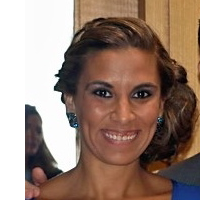Our Counselors Answered:
Should students disclose a disability on the admission application?
Einstein and Mozart had ADHD, but the controversy over the disease continues
The common diagnosis of ADHD has increased consistently over the past few years. A recent study at the University of Central Florida concluded that people with ADHD are most notably more “fidgety’ than others when trying to concentrate or focus. For example, they split up a group of boys – some with and some without ADHD – and asked them to watch the movie. The results showed that the groups remained basically still because they didn’t have to actively think while watching the film.
On the other hand, when students with ADHD become bored or must concentrate on a subject that does not interest them, the become fidgety as though attempting to take themselves and their brains up so they could focus. In fact, many people diagnosed with ADHD have higher intelligence than those who do not. In fact, evidence of hyperactivity has been documented in great thinkers like Einstein and Mozart.
Some argue that students need pharmaceuticals in order to get their focus in check; they perceived ADHD as a problem and wanted to fix it it. This realization ushered in an entirely new market for pharmaceutical companies. This argument begs the question: how did people who suffered from hyperactivity cope so well before the dawn of miracle druges that prevent them from moving too much while attempting to focus? One must consider the option that perhaps drugs are not necessary to help children learn.
A few high schools exist that cater to students with ADHD, most notably the private school named Charlotte Country Day in Virginia, offer a better learning environment for students who have trouble concentrating. They maintain small class sizes and zero in on individual attention. The students respond overwhelmingly positively to this tupe of learning environment and find that they have mastered the skills necessary to succeed in college.
Perhaps instead of comparing the ADHD of today to that from years ago, researchers and educators should take the problem at face value and expect nothing les than what past leaders offered the the world. By teaching the students to cope without medication we will not rob them of their creativity, but perhaps foster it so they can feel energized rather than “dumbed down.”
 Rana SlosbergOwnerSlosberg College Solutions LLC
Rana SlosbergOwnerSlosberg College Solutions LLC
It depends
Type your answer here
 Karen Ekman-BaurDirector of College CounselingLeysin American School
Karen Ekman-BaurDirector of College CounselingLeysin American School
Should students disclose a disability on the admission application?
Disabilities should indeed be disclosed on the admission application in the appropriate section. This information will not be used against a student. It is instead a way for institutions to know that they have or will have the facilities to accommodate the student’s disability.
Before applying to colleges or universities, a student with a disability should research what sorts of disability support is available at those institutions. Undoubtedly, some schools will have more comprehensive support than others relative to the student’s specific disability. It’s important to know that ahead of time. And it’s important for the institutions to know ahead of time about the student’s disabilities, so that the best possible support can be provided.
 Karen Ekman-BaurDirector of College CounselingLeysin American School
Karen Ekman-BaurDirector of College CounselingLeysin American School
Should students disclose a disability on the admission application?
Disabilities should indeed be disclosed on the admission application in the appropriate section. This information will not be used against a student. It is instead a way for institutions to know that they have or will have the facilities to accommodate the student’s disability.
The Americans with Disabilities Act, passed in 1990, guarantees that all U.S. colleges/universities provide some level of services/accommodations for students with disabilities. Some institutions, taking this requirement further, offer comprehensive programs supporting learning and/or physically disabled students. Students should seek schools which offer the best support for their specific disabilities.
Before applying to colleges or universities, a student with a disability should research what sorts of disability support is available at those institutions. Undoubtedly, some schools will have more comprehensive support than others relative to the student’s specific disability. It’s important to know what sorts of support are available ahead of time. And it’s important for the institutions to know ahead of time about the student’s disabilities, so that the best possible support can be provided.
 Jane McClurePartnerMcClure, Mailory & Baron Educational Counseling
Jane McClurePartnerMcClure, Mailory & Baron Educational Counseling
Should students disclose a disability on the admission application?
Here is my video response to the question.
 王文君 June ScortinoPresidentIVY Counselors Network
王文君 June ScortinoPresidentIVY Counselors Network
I don’t believe it makes a big difference
many schools will not require you to disclose your special needs situation. if the school does offer programs to help students like you, the school will know what to look and how to connect students to the program. make sure you pay a visit to investigate the program first.
 Tam Warner MintonConsultantCollege Adventures
Tam Warner MintonConsultantCollege Adventures
Disclosing on your application
It depends. If you are going to request accommodations after you are accepted, there is no need to disclose your disability during the application process. Many times disabled students, whether physical or learning, write an essay about their difference, thereby disclosing the disability on an essay. Research the college and if you question whether they have the services you need, check it out before applying.
 Rana SlosbergOwnerSlosberg College Solutions LLC
Rana SlosbergOwnerSlosberg College Solutions LLC
It depends
Whether to disclose a disability is a personal decision. The college is prohibited from asking a student about a disability and may not deny admission because of that disability. Colleges are not required to waive or lower their admission criteria if a student discloses.
A student might want to disclose if they have something to gain from disclosure. For example, a student might want to disclose if the disclosure explains poor academic performance prior to being diagnosed with a learning disability or if the student wants to highlight how they have learned to adapt and make adjustments to their learning style.
 Tyler BurtonPresident Burton College Tours
Tyler BurtonPresident Burton College Tours
The art of self-disclosure
It is my opinion that a student’s application should display a student’s strengths. If a student presents a well rounded application without disclosing then I feel that self-disclosure has no place on an application. Disabilities that show up on an academic transcript in the form of a poor grade may be best addressed in a counselor recommendation provided that the student has worked hard and the counselor has positive comments to add.
 Mary Mariani
Mary Mariani
Should students disclose a disability on the admission application?
If there is a direct question asking whether there is a disability or not, the answer is yes.
If not and there is an opportunity to talk about it, I would do so. I have always believed that being honest about one’s learning needs is very important. If the institution can make accommodations to assist the student in being successful, I believe the student should take full advantage of what is available. The college wants all of its students to be successful, which means that the staff needs to know what assistance students will need.
 Annie ReznikCounselor/CEOCollege Guidance Coach
Annie ReznikCounselor/CEOCollege Guidance Coach
Should students disclose a disability on the admission application?
Disclose your learning difference if it helps tell your story. For example, a student that received a diagnosis mid-way through high school which impacted academic performance should share the information in their application. Filling in the dots of your progression helps admission officers distill the big picture of your application.
 Nancy MilneOwnerMilne Collegiate Consulting
Nancy MilneOwnerMilne Collegiate Consulting
Should students disclose a disability on the admission application?
Disclosing a disability on the application is totally up to you. If you feel it will help explain something that might otherwise be confusing, then definitely use the opportunity to clarify. Schools can not hold a disability against you when evaluating your application, so you don’t need to worry about that. If the availability of certain support services will be critical to your success on campus, then the application is the place to make that known. If you haven’t done you homework to see if the campus can support your needs, and you don’t tell anyone about your disability, you may be disappointed once you are on campus. Again, if you feel after 4 years of high school you have things under control and don’t want to disclose a disability; go for it.
 Bill PrudenHead of Upper School, College CounselorRavenscroft School
Bill PrudenHead of Upper School, College CounselorRavenscroft School
Disability Disclosure? Yes, It Is Part of Who You Are
There is some division on this question. I have always believed that a student should disclose the information, that the disability is not something to hide, but is instead an important, but not defining, part of who they are and provides context for their overall record. However, there are those who fear that, the law notwithstanding, schools see it as a problem, one they do not want to deal with or are staffed to deal with once the student gets on campus, and thus may use it as a reason to deny admission. My experience has been to the contrary and I do think that it is in the applicant’s best interest to provide the admissions office with a full picture of who they are that includes full knowledge of the disability.
 Ronald Harris
Ronald Harris
Should students disclose a disability on the admission application?
Yes, so that the university can accomadate you.
 Reecy ArestyCollege Admissions/Financial Aid Expert & AuthorPayless For College, Inc.
Reecy ArestyCollege Admissions/Financial Aid Expert & AuthorPayless For College, Inc.
Should students disclose a disability on the admission application?
Absolutely, so they can be assured that all necessary steps are taken to satisfy it if the student decides to attend that school. Otherwise, it could be a disaster!
 Lisa CarltonOwnerwww.collegematchpoint.com
Lisa CarltonOwnerwww.collegematchpoint.com
Should students disclose a disability on the admission application?
There is not a simple answer to this question. If you are applying to a college that works primarily with students with learning differences then I would suggest disclosing your disability. However, in general I do not recommend disclosing your disability. It is important to note that this will in no way hinder you from accessing services for your disability once admitted. You will submit documentation of your disability once you are admitted to determine the services you will receive.
 Kathleen HarringtonOwnerNew Jersey College Consulting
Kathleen HarringtonOwnerNew Jersey College Consulting
Should students disclose a disability on the admission application?
Students should be able to disclose their disability when they apply to college without fear of discrimination. Remember, when you sign your application, you are attesting to the fact that all information is truthful and is not altered in any way. According to the Rehabilitation Act of 1973, Section 504, “No otherwise qualified handicapped individual in the US shall soley by reason of his handicap, be excluded from participation in, be denied the benefits of, or be subjected to discrimination under any program or activity receiving financial assistance.” A college can not limit the number of students with disabilities they admit.









